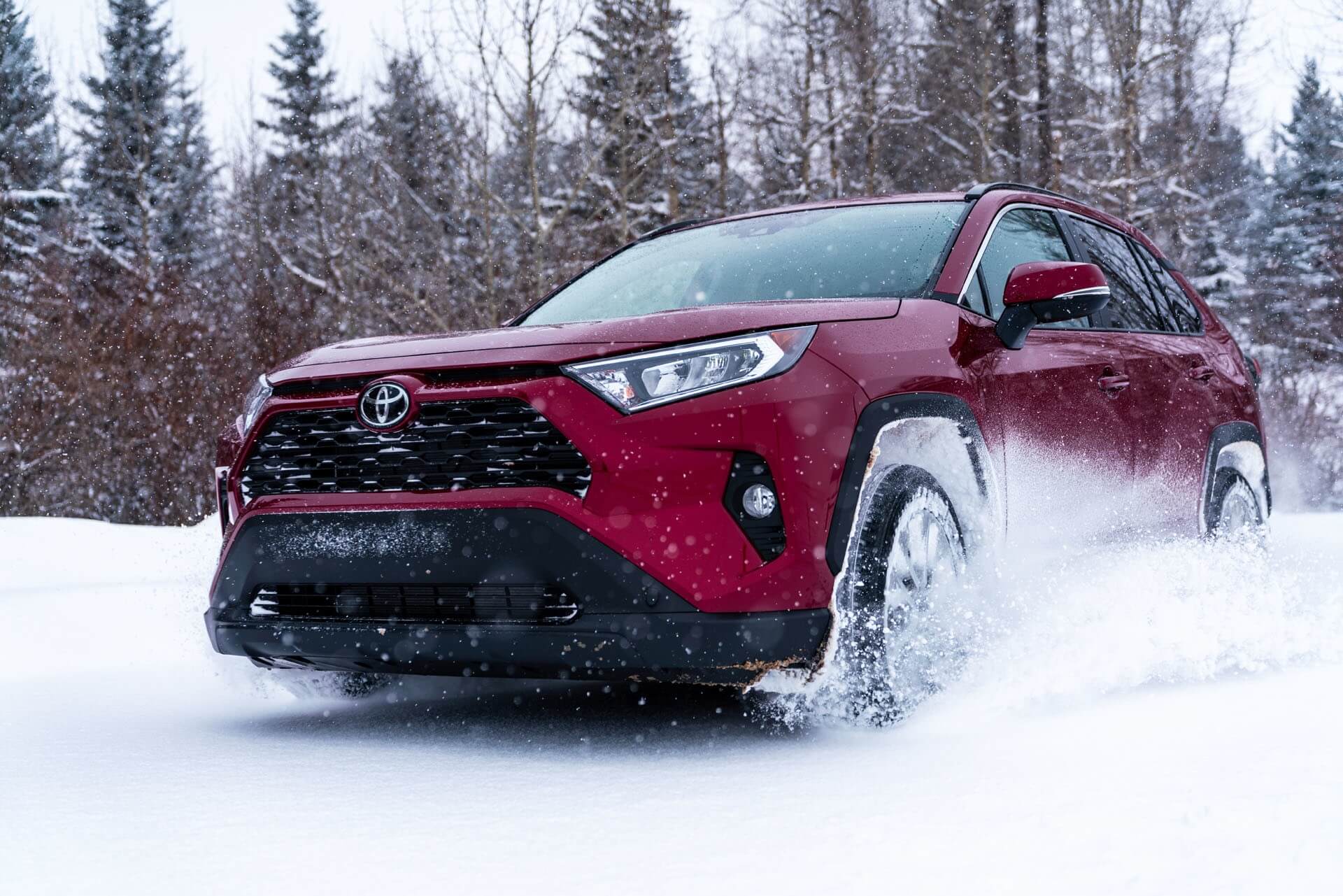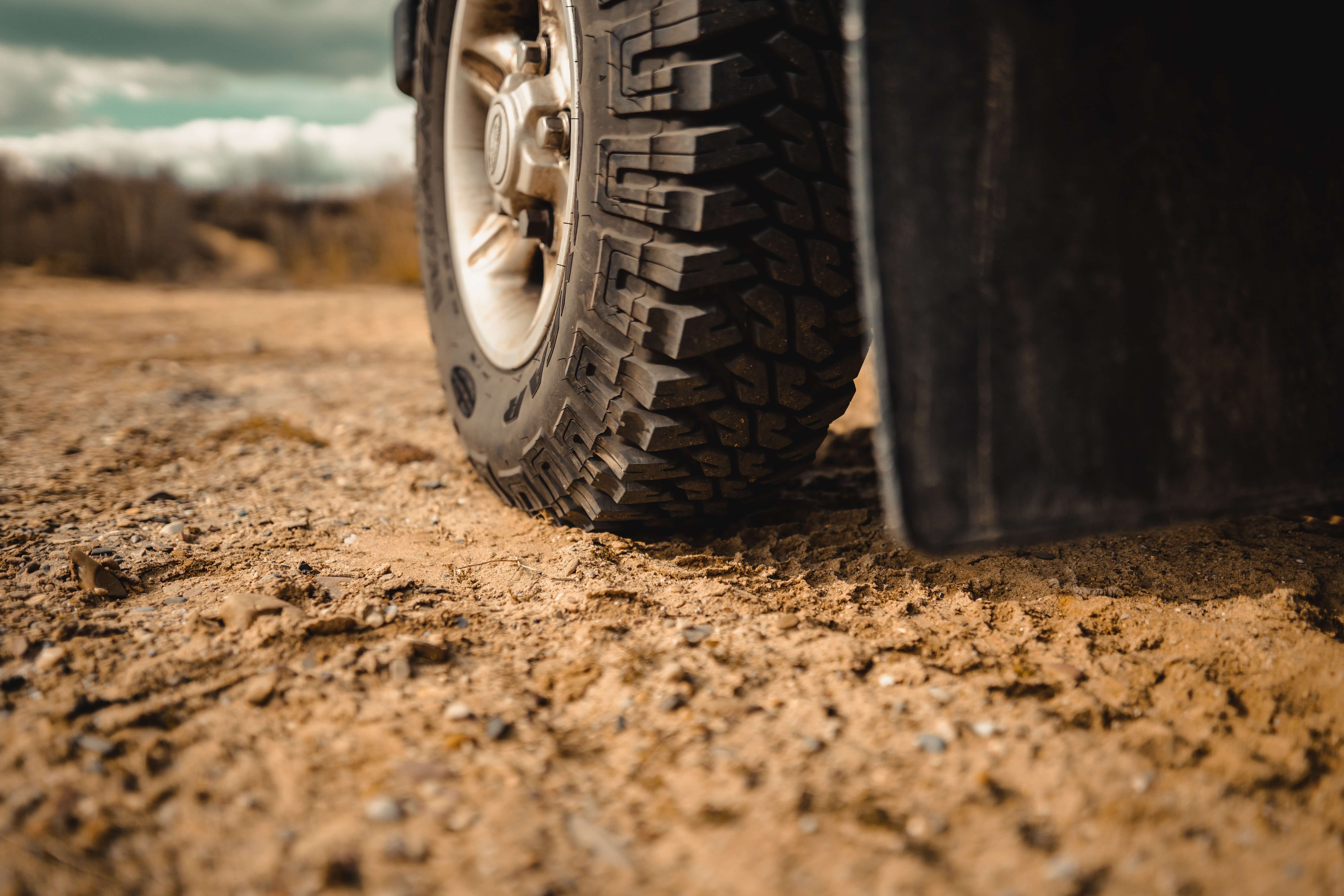Seasonal Tire FAQs

Contrary to popular belief, not all tires are created equal. In the name of road safety, consistently rotating your tires is an essential part of vehicle maintenance, not to mention that local weather conditions will play a huge role in determining which tires you should be using and when to get them installed. From winter tires to all-terrains to all-seasons, tires come in all shapes, sizes, and functionalities. That's why at Castlegar Toyota, we've compiled this comprehensive FAQ guide to help you become more familiar with your options and determine which type of tires are most suitable for your vehicle.
Does the Type of Tire I Use Matter?
Generally, the answer to this question will depend on where you're located and what kind of weather conditions you drive in. If you live somewhere where the weather is pretty mild all year round, you'd likely be just fine with regular summer tires. However, if you commonly experience the brisk, snowy winters our great Nation has to offer us every year, rotating between summer, all-seasons, and snow tires is pretty much a no-brainer.
Does Rotating My Tires Matter?
Having the wrong tires on at the wrong time can put you and your passengers at risk on the road. The last thing you want is to be caught driving through torrential rainfall or, worse, a ghastly blizzard without tires that provide enough grip on the pavement! In contrast, as the temperatures heat up, that tight rubber grip? Well, it will lead to soft tires, poor acceleration, and a sluggish ride during the summer months. And no one wants that!
What Are the Main Types of Tires?
Summer Tires
If you live somewhere with generally mild weather conditions and drive a standard-sized vehicle like a car, SUV, or van, then summer tires will likely be your best bet. Best for climates that don't drop below 7°C, summer tires can perform well in both wet and dry road conditions – wet meaning a little rainfall, not sleet or snow! They are engineered and optimized with just enough grip and responsive handling for wet and dry pavements, and typically feature solid contact patches and grooves for hydroplaning resistance.

Winter/Snow Tires
If there's anything we Canadians know all too well, it's that time of year when the days get shorter, the nights get colder, and that first snowflake drops, all serving as a reminder to get your snow tires installed. We generally suggest winter or snow tires for any climate that dips below 7°C or anywhere where snow or ice tends to linger for months at a time. These kinds of tires are specifically designed to provide you with enough grip and braking ability due to their flexible rubber compounds. They also feature small cuts called snipes that provide increased traction against wet and icy roads. In addition, their deep grooves assist in dispelling layers of snow and slush, keeping you and your loved ones as safe as possible.
All-Season Tires
Here in B.C., our winters are much milder in comparison to our friends out in Saskatchewan. All-season tires are the perfect middle child of winter tires and summer tires. While they might not provide sufficient traction to handle 8 inches of snow, they are technically built to comfortably drive on both wet and dry roads all year round. If you experience light snowfall, all seasons will suit you just fine. For lower noise and better handling, it's best to go for all-season touring tires. For a smoother ride and enhanced durability, all-season passenger tires are a good choice.
Performance Tires
Performance tires are specialty tires that provide more acceleration to your ride. While mainly used in flashy sports cars, it's not uncommon to find them on your modest sedan or family minivan. The tires will provide the feel of moving faster with increased handling and better cornering. The most common types of performance tires include basic performance, high performance, ultra-high performance, and competition.
Truck Tires
The kind of truck tire you need will depend on the type of truck you drive and the performance you need. Perhaps you drive in off-road conditions, like snow and mud. You’ll likely want all-terrain truck tires. Or maybe your commute to the job site leads on the busy highway day after day. In this case, your truck should have highway truck tires that resist uneven wear and provide a smoother ride. If you need a superior braking system, performance tires all the way!

How Do I Check My Tire Pressure?
Checking your tire pressure is a good practice for vehicle and tire maintenance. Doing so will ensure your tires deliver the best fuel economy and handling performance, and it only takes a few minutes! It's important to ensure you find the recommended pressure for your particular tires before checking. You'll need a reliable tire gauge such as a stick gauge, a digital gauge, or a dial gauge. To check your tire pressure, simply:
- Remove the valve cap on the tire.
- Press the tire gauge onto the valve. If you're using a stick gauge, make sure you're using the open end, not the side that releases air.
- Wait for the pressure reading on the screen. On a stick gauge, wait until the white plastic stick stops moving. On a dial gauge, wait until the needle on the face stops moving.
It’s recommended that you repeat two or three times to ensure an accurate reading and then follow it through again for each of your four tires and your spare.
What Does LT Mean on a Tire?
LT tires refer to “light truck” tires. Regular passenger tires are designed for lighter-weight vehicles such as cars, minivans or crossover SUVs. LT tires are for heavier vehicles like larger trucks, SUVs, and vans.
What Type of Tires Can Help Prevent Hydroplaning?
Hydroplaning occurs as your tires skid or slide across a wet surface. Water pressure in the front of the wheel pushes water under the tire, and the tire is then separated from the road surface by a thin film of water and loses traction. This results in a loss of steering, braking, and power control. Winter tires, and sometimes all-seasons, with tread and grooves are designed to channel water from beneath the tire can minimize the chance of hydroplaning.
Book Your Next Tire Service With Castlegar Toyota!
Wondering how to ensure your Toyota’s tires are performing their best on the streets of Castlegar? Our expert Toyota technicians will recommend the ideal seasonal tires for your particular vehicle, and provide a wide range of tire inspection, rotation, and installation services. At Castlegar Toyota, safety always comes first! Schedule an appointment to get the right set of tires on your vehicle today!